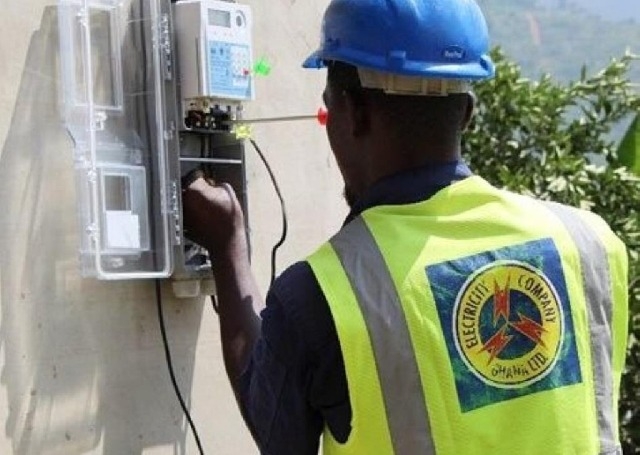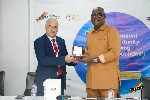Ghanaians pay subsidised cost for ECG metre-PRO
 ECG metre being installed
ECG metre being installed
The Public Relations Officer for the Accra East Region of the Electricity Company of Ghana (ECG), Mary Oppong Eshun, has clarified that electricity meters supplied to customers are not sold but are heavily subsidised by the Government of Ghana, making them the property of the state.
Speaking on the Ghana Yensom Morning Show hosted by Chief Jerry Forson on Accra 100.5 FM on Thursday, November 27, 2025, Miss Eshun explained that although customers make certain payments during the acquisition process, these fees are strictly facilitation charges and not payments for purchasing the meters.
“ECG meters remain the property of the government. The fees customers pay are to facilitate installation—not for buying the meters,” she emphasised.
She added that ECG reserves the right to replace meters when they expire or need system upgrades.
Miss Eshun also provided detailed information on the types of meters currently in use, noting that ECG has both postpaid and prepaid systems, with the prepaid category further divided into smart and non-smart meters.
She outlined the current charges involved in the meter acquisition process:
GHS 100 registration fee (paid via mobile money).
GHS 1,353.60 for a new single-phase connection.
GHS 2,520.72 for a new three-phase connection.
According to her, separate meters for commercial use are treated as completely new acquisitions, while separate meters for residential consumers fall under ECG’s standard service classifications.
To improve customer experience, ECG has introduced premium services for clients who prefer faster or enhanced service delivery.
Fees under this category include:
GHS 3,130.16 for a new meter under premium service.
GHS 2,185 for separate meters under the premium category.
Miss Eshun also addressed concerns about unexplained debt accumulation on some meters.
She explained that every customer is required to pay a monthly service charge of GHS 12.
Failure to pay this service charge results in a buildup on the meter.
She admitted, however, that in some cases, the buildup occurs due to ECG’s inability to synchronise certain meters with the system for automatic monthly deductions.
“When the system fails to sync a meter, the unpaid charge piles up and later appears as debt when customers buy credit.
We apologise for these anomalies in the metering process,” she said.
Miss Eshun assured the public that ECG is working to resolve synchronisation issues to ensure accurate deductions and prevent recurring billing challenges.
Source: Classfmonline.com/Cecil Mensah
Trending Business

GIPC CEO urges investors to capitalise on Ghana’s pro-business environment
01:40
TAGG attributes high prices of goods on the market to Customs taskforce bribery
14:31
Ghana generates US$9 billion in foreign exchange through ASM -Sammy Gyamfi reveals
12:52
S/R: PBC shea butter factory back up, contracts secured to supply Netherlands, others
12:16
We never valued Springfield’s asset at US$700 million- GNPC, Explorco reject allegations
06:37
Ghana welcomes rescission of Trump's 15% tariffs on cocoa, other agric products, and forecasts $60m in revenue boost
14:06
GUTA women's wing embarks on National Monitoring Tour to support traders
16:57
GTBank opens 38th branch in Ho, assures quality customer care and commitment to Volta Region’s economic growth
19:36
Blue Gold responds to Supreme Court ruling on Bogoso-Prestea mine case
08:22
President Mahama Appoints Kwame Griffiths as Deputy MD of Cocoa Processing Company
08:09




